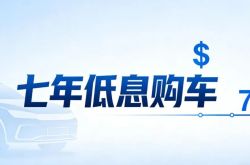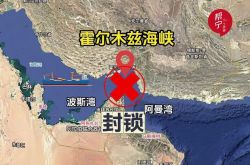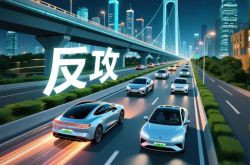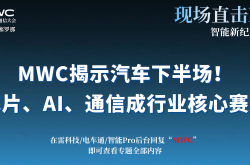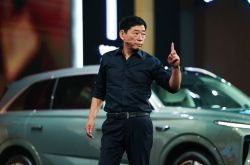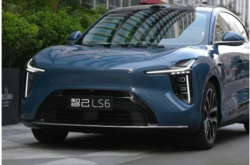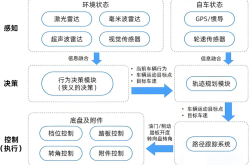Car companies, are you tired of the intense competition?
![]() 09/26 2024
09/26 2024
![]() 543
543
Competition heats up
As we enter the second half of the year, the intense "price war" that was raging seems to have cooled off considerably. Multiple brands have reduced their promotional discounts to varying degrees, announcing in different forms that they will stop "lowering prices to maintain sales volumes" and instead "reduce volumes to maintain prices." However, the actual "price war" has not stopped but has entered a new phase with more diverse forms. On September 10, the Passat 380TSI family was launched, priced at RMB 176,900-239,900. Among them, the Passat 2025 Outstanding Edition has a limited-time fixed price of RMB 159,900-179,900, while the Passat Pro has a limited-time fixed price of RMB 189,900-223,900. At the launch event, SAIC Volkswagen also announced that it would extend its lifetime warranty on powertrains to all gasoline-powered models effective immediately.
On September 5, the Lynk & Co Z10 was launched with an official guidance price range of RMB 202,800-299,800 and a limited-time sales price range of RMB 196,800-288,800. Meanwhile, customers who purchase the vehicle within a specified time frame can enjoy up to RMB 52,000 in purchase benefits. At the 2024 Chengdu Auto Show, SAIC Volkswagen officially unveiled the Touareg X, with an official guide price range of RMB 125,900-153,900. During the limited-time promotion, the sales price was adjusted to RMB 79,900-106,900. In addition to offering discounts of up to RMB 40,000, SAIC Volkswagen also introduced a lifetime warranty on powertrains as a launch benefit. In fact, starting in the first half of the year, several brands have begun offering "limited-time price guarantees," promising not to lower prices for a certain period (mostly 90 days). In the second half of the year, "limited-time price guarantees" evolved into "limited-time discounted prices," with new car launches offering not only price discounts but also more "tempting" purchase benefits. From "lowering prices to maintain sales volumes" to "reducing volumes to maintain prices" and now to "limited-time prices," have car companies truly reached the limit of price competition? For consumers, which approach is more acceptable?
Alternative Price Reductions
Since last year, the escalating price war has disrupted the market's original rhythm, leaving car companies struggling to cope while consumers' wait-and-see attitude has intensified.
Today, conventional discounts are no longer enough to stimulate consumers, and more novel and impactful "limited-time prices" and limited-time benefits have emerged to stimulate demand in combination.
As one of the "legendary" cars and still ranking among the top ten best-selling sedans, the Passat is also under significant pressure from the impact of new energy vehicles and price wars. Therefore, when the Passat 2025 Outstanding Edition and Passat Pro were launched, they continued SAIC Volkswagen's recent strategy of limited-time pricing and limited-time benefits.
Among them, the limited-time fixed price of the Passat 2025 Outstanding Edition is RMB 13,000-17,000 lower than the guidance price, while the Passat Pro is RMB 10,000-16,000 lower. In addition to offering a lifetime warranty on powertrains, purchase benefits such as owner referral rewards and unlimited media data plans were also introduced for both models.

Image source: SAIC Volkswagen
The purchase benefits for the Touareg X are more straightforward, with limited-time prices up to RMB 46,000-47,000 lower than the guidance price, and a commitment to a lifetime warranty on powertrains, making it clear and concise.
"We are doing this to fully demonstrate the company's strengths. First of all, our product quality system is excellent, with first-class manufacturing processes and solid materials, including technologies such as laser welding and double-sided galvanizing, which will ultimately be reflected in our competitive advantage," said Fu Qiang, Executive Deputy General Manager of Sales and Marketing at SAIC Volkswagen and General Manager of Shanghai Anji Automotive Sales Co., Ltd., in an interview with China Newsweek. "In the first half of the year, we focused on maintaining and renewing value. In the second half, we are making some new attempts. Because we have confidence in our product quality control, we dare to make such a commitment and want to turn our system strength into market competitiveness that users can directly perceive."
Lynk & Co Z10, which adopted a similar strategy, offered discounts of RMB 8,000-11,000 compared to the guidance price during the limited-time promotion. In addition, all models came with a free upgrade to a 23-speaker Harman Kardon audio system valued at RMB 10,000, while the Max and Ultra versions received a free upgrade to a luxurious cabin valued at RMB 8,000, and the Pro and Max versions received a free upgrade to an active spoiler valued at RMB 5,000. These purchase benefits are all highlights of the Lynk & Co Z10 design.
In addition to these benefits, on September 8, Chen Xiaofei, Deputy General Manager of Lynk & Co Automobile Sales Co., Ltd., also stated publicly that in response to feedback from multiple car reservation users, Lynk & Co decided to allow users to flexibly choose between physical benefits such as free charging piles and solar films, with users who do not need physical benefits able to convert them into car payments.
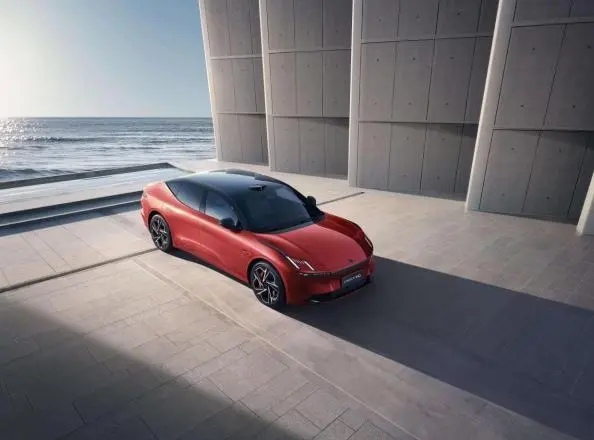
Image source: Lynk & Co
"Many smart electric vehicles today focus on parameters and configurations while ignoring user feelings and emotional value. The reason is that in the rapidly developing era of new energy vehicles, car companies are still building their brand moat, and user loyalty to the brand is still to be tested," Chen Xiaofei said in an interview. This is both an opportunity and a challenge, as product power and original design will undoubtedly bring consumers a different and smarter experience, as well as emotional value, reawakening their pursuit of automotive aesthetics.
Evolving Through Competition
Facts have shown that the strategy of trading volume for price has not led to intuitive sales growth. Instead, the price war has intensified and spread, causing difficulties for multiple companies up and down the entire automotive industry, with layoffs occurring at automakers, suppliers, and dealers. Deng Chenghao, CEO of Deep Blue Automobile, believes that "the price war is raging, and the prices of many products are far from their true value, which is not conducive to the high-quality development of the new energy vehicle industry." Yu Chengdong, Executive Director of Huawei, Chairman of the Terminal BG, and Chairman of the Intelligent Automotive Solutions BU, said that it should be a "war of value" rather than a "war of price." Changan Automobile has also stated publicly that "while others compete on price, Changan competes on technology."
In the view of industry insiders, concepts such as "war of value" and "war of technology" refer to competition among enterprises in enhancing product value and technological innovation. Unlike price competition, this type of competition focuses more on product quality, performance, and innovation capabilities, representing a more positive form of market competition.
In fact, the "war of value" has quietly begun since April. Unlike the limited-time discounts, limited-time insurance subsidies, and limited-time deposit deductions in the "price war," the "war of value" is supported by technological upgrades and rich product configurations, bringing users' focus back to the vehicle itself.
Wang Xia, President of the Automotive Industry Committee of the China Council for the Promotion of International Trade and President of the Automotive Industry Chamber of Commerce of the China Chamber of International Commerce, pointed out at the Chongqing Forum that the second half of the automotive industry's development begins with a price war but will ultimately be won through technology and value wars.
Zhang Yongwei, Vice Chairman of the China Electric Vehicle Hundred People Forum, said that the internal competition in the automotive industry is an upward spiral of intelligence. Intelligence encompasses iterative updates in the fields of intelligent driving and intelligent cockpits, as well as the comprehensive competitiveness of moving towards a multi-point large system of vehicle-road-cloud collaboration.
Although there is still a certain gap in intelligence compared to domestic electric vehicles, joint venture brands are also stepping up their efforts, striving to catch up with mainstream intelligent driving configurations when new cars are launched.
"I hope everyone can see the progress made by SAIC Volkswagen and encourage us," said Fu Qiang. In terms of internet connectivity and intelligence, including smart cockpits and intelligent driving, we have made progress, and the gap is visibly narrowing. In addition, SAIC Volkswagen will continue to invest, especially in software upgrades, not just in intelligent driving.
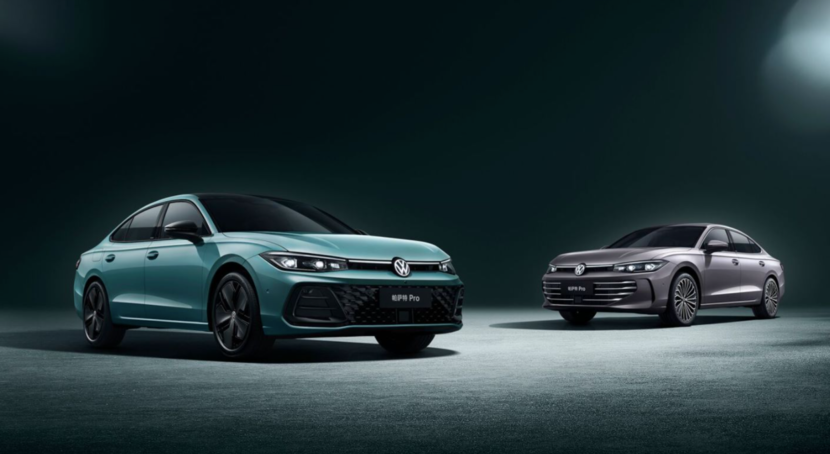
Image source: SAIC Volkswagen
Of course, in the "intelligence competition," Huawei's HarmonyOS Intelligent Driving stands out. At Huawei's Autumn New Product Launch Event on September 10, Yu Chengdong announced that starting from September 2024, all HarmonyOS Intelligent Driving systems will be upgraded to HUAWEI ADS 3.0. According to the introduction, HUAWEI ADS 3.0 is the first to apply end-to-end human-like intelligent driving, making a leap from simply "recognizing obstacles" to deeply "understanding driving scenarios." It intelligently handles complex road conditions, ensuring smoother driving control and safer emergency response.
Judging from the current situation, the automotive market has evolved from a crude "price war" to a combination of "price war," "technology war," "configuration war," and "quality war."
The years 2023 to 2025 are widely recognized as a crucial period for the elimination round in the industry. Now that the price war has advanced to a new stage ahead of schedule, it may once again intensify the elimination process.
"Whether it's gasoline-powered or new energy vehicles, technology is the most crucial factor. In the future, car companies still need to focus on technological improvements and use relatively advanced technologies to replace price adjustments," said Cui Dongshu, Secretary-General of the China Passenger Car Association.
This article is originally created by China News Auto. Welcome to share it with your friends. If media outlets wish to reprint this article, please indicate the author and source at the beginning of the text. Any media or self-media that produces video or audio scripts based on any content of this article will be held legally responsible.

